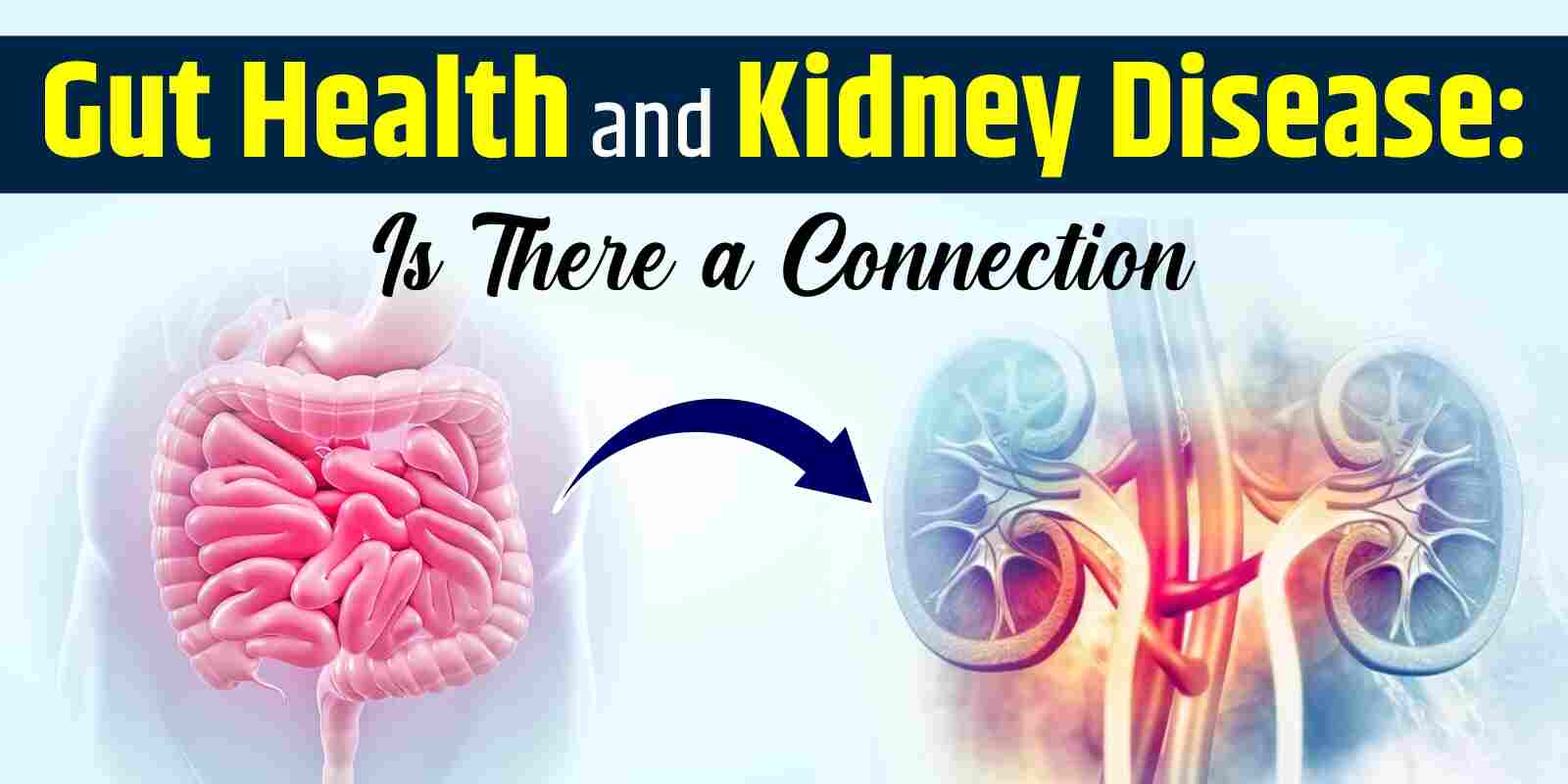
Hi there! Did you ever consider that your kidneys and gut may communicate? I know, it sounds strange, right? The gut's job is to digest food, and the kidneys are good at filtering toxic waste. So, it doesn't seem like there would be a lot of dialogue happening between these two systems. However, exciting new research in 2025 is showing just how gut kidney axis is vital for our health; it's akin to discovering that two neighbors you thought had nothing in common have a profound relationship that impacts the entire neighborhood, i.e., your body.
Let’s break it down together in simple terms and see how gut health and kidney disease are surprisingly linked and what you can do about it.
You may have heard the term gut-brain axis before, which shows how your gut and brain are constantly in communication. Well, scientists have now identified something similar called the gut-kidney axis. This means your digestive system and your kidneys are working as a team. When one is out of balance, the other feels the pressure.
In 2025, several studies confirmed that people with chronic kidney disease (CKD) often have poor gut health. And here's the kicker: it’s not just a coincidence. An unhealthy gut may contribute to the worsening of kidney problems.
So, how does this communication happen? It mostly involves microbes, also known as your gut microbiome. That’s the community of trillions of bacteria living in your intestines. Some are helpful and friendly, while others are more harmful when they grow too many.
Let’s paint a picture. Imagine your gut is like a garden. When you feed it right (fiber-rich foods, fruits, vegetables, fermented items), it blooms with good bacteria. But when the garden gets neglected, or fed junk food, too much sugar, or antibiotics, harmful bacteria can take over.
In fact, in 2025, researchers from Japan and Europe have pinpointed specific gut-derived toxins that increase inflammation and directly speed up kidney decline.
One of the most alarming things is that gut-related problems don’t always come with clear digestive symptoms. You might not feel bloated or have tummy issues, but deep inside, the imbalance may still be harming your kidneys.
That’s why in 2025, many nephrologists (kidney doctors) are now also looking at gut reports, stool tests, and even diet assessments when evaluating kidney patients.
Now, let’s flip the coin.
When your kidneys don’t filter waste properly, toxins build up in your blood. This can change the environment in your gut. It makes your intestines more acidic and less friendly to good bacteria. That’s when the bad bacteria party begins, causing even more inflammation, gas, constipation, and increased production of kidney-damaging toxins. It becomes a vicious cycle.
This two-way link, kidneys affecting the gut and the gut affecting kidneys, is now a major focus in global health research.
Okay, enough of the science stuff. Let’s get practical. What can you do today to protect both your gut and your kidneys? Here's the good news: the steps are pretty simple and natural.
Fiber is like fertilizer for your good gut bacteria. It helps grow the healthy strains that reduce inflammation and stop toxin production. Aim for foods like:
If you're a kidney patient, just make sure your fiber sources are kidney-safe and low in potassium or phosphorus (always check with your doctor).
Cut back on red meat, processed foods, sugary snacks, sodas, and fried stuff. These feed harmful bacteria and increase toxic byproducts in your gut that your kidneys will struggle to handle.
Foods like homemade curd, kanji, and fermented rice (known as poita bhaat in some parts of India) can be gut-friendly probiotics for kidney health. But again, check what works for your kidney condition.
Water helps flush toxins and supports digestion, but if you have fluid restrictions due to kidney disease, follow your doctor's advice closely.
Kidney failure treatment in Ayurveda has long believed that Agni (digestive fire) is the root of overall health. Many Ayurvedic herbs like Triphala, Punarnava, and Guduchi are known to balance gut health and gently support kidney detox. In 2025, even Western researchers are studying these herbs for their gut-kidney balancing effects.
In case you’re wondering, yes, there is hope. In 2025, researchers in India, the U.S., and Germany have developed personalized probiotic therapies specifically for kidney patients. These probiotics are designed to reduce the production of kidney-damaging toxins right at the gut level.
Also, stool microbiome testing is becoming more accessible, so doctors can create diet and supplement plans based on your unique gut bacteria. This is a huge leap forward.
Here’s the takeaway: your gut and kidneys are partners in your body’s wellbeing. Treating them as separate organs is an outdated idea. In 2025, as we think of holistic care, and digestion, detox, immunity, and inflammation as part of the same story.
So, the next time you think about your kidneys, be sure to also check in with your gut. That bloating, feeling tired, or those food cravings may be early signals that somehow connect to something more powerful.
Ans. It confirms that gut health and kidney function are closely linked, with gut dysbiosis accelerating CKD progression.
Ans. Imbalanced gut flora increases inflammation and uremic toxin production, worsening kidney damage.
Ans. Yes, studies suggest certain strains reduce inflammation and toxin levels, mildly benefiting kidney health.
Ans. They accumulate in CKD, triggering oxidative stress and further harming the kidneys.
Ans. Fiber supports beneficial gut bacteria and reduces toxin absorption, improving outcomes in CKD.
Ans. Yes, synbiotics, postbiotics, and adsorbents like AST-120 show promise in slowing CKD progression.
Ans. By monitoring gut symptoms, dietary habits, and considering microbiota-targeted interventions alongside standard care.
"Ayurveda is not just a system of medicine; it's a way of life. Connect with us to embrace a lifestyle that nurtures your body, mind, and soul."

Certificate no- AH-2023-0186
JAN 05,2023-JAN 04,2026